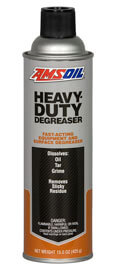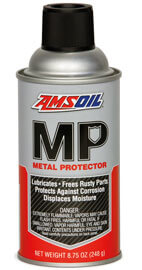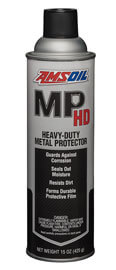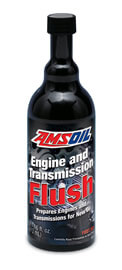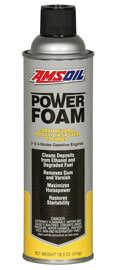Product/Account Links
AMSOIL Accounts
Products
Other Products
AMSOIL Power Foam®
Product Details
AMSOIL Power Foam® (APF) improves engine performance by removing gum, varnish and carbon deposits that affect power, operation, idle and fuel economy. Power Foam cleans intake valves, intake manifolds and throttle plates to keep the combustion intake system running at peak efficiency. Effective in both two- and four-stroke gasoline engines, Power Foam helps reduce engine ping and keeps carburetors and injector systems operating like new.
Product Description
**NOT AVAILABLE IN CANADA
**NOT AVAILABLE IN CALIFORNIA
Power Foam is safe for fuel injectors, catalytic converters and emissions-control devices. It will not damage seals, gaskets, rubber or plastic materials commonly used in gasoline engines.
Performance Features
- Cleans deposits from ethanol and degraded fuel
- Removes gum and varnish
- Maximizes horsepower
- Restores startability
- Helps improve fuel economy
- Reduces pollution
Applications
- UTVs/ATVs
- Boats
- Motorcycles
- Lawn equipment
- Tractors
- Automobiles
Directions
1. Protect painted surfaces and mass airflow sensors (MAF) from spray.
2. Ensure application is in a well-ventilated area.
3. Run engine to normal operating temperature and remove air cleaner assembly.
4. While engine is running, spray foam directly into throttle body as fast as possible without stalling engine. It is common to have to rev the engine above idle to facilitate this process.
5. Shut off engine and allow to sit for 10-15 minutes.
6. Replace air cleaner.
7. Restart engine. Repeat application of Power Foam as needed.
In extreme cases, disassemble carburetor and soak parts.
Recommendations
Avoid contact with hoses and exterior plastic components. To prevent the dissolving of paint, do not overspray. Clean any overspray immediately to prevent unintentional component damage. AMSOIL Power Foam is not recommended for use in diesel engines or as a general-purpose degreaser.
AMSOIL PRODUCT AVAILABILITY
AMSOIL Power Foam is available in 18-ounce spray cans.
**NOT AVAILABLE IN CALIFORNIA
Power Foam is safe for fuel injectors, catalytic converters and emissions-control devices. It will not damage seals, gaskets, rubber or plastic materials commonly used in gasoline engines.
Performance Features
- Cleans deposits from ethanol and degraded fuel
- Removes gum and varnish
- Maximizes horsepower
- Restores startability
- Helps improve fuel economy
- Reduces pollution
Applications
- UTVs/ATVs
- Boats
- Motorcycles
- Lawn equipment
- Tractors
- Automobiles
Directions
1. Protect painted surfaces and mass airflow sensors (MAF) from spray.
2. Ensure application is in a well-ventilated area.
3. Run engine to normal operating temperature and remove air cleaner assembly.
4. While engine is running, spray foam directly into throttle body as fast as possible without stalling engine. It is common to have to rev the engine above idle to facilitate this process.
5. Shut off engine and allow to sit for 10-15 minutes.
6. Replace air cleaner.
7. Restart engine. Repeat application of Power Foam as needed.
In extreme cases, disassemble carburetor and soak parts.
Recommendations
Avoid contact with hoses and exterior plastic components. To prevent the dissolving of paint, do not overspray. Clean any overspray immediately to prevent unintentional component damage. AMSOIL Power Foam is not recommended for use in diesel engines or as a general-purpose degreaser.
AMSOIL PRODUCT AVAILABILITY
AMSOIL Power Foam is available in 18-ounce spray cans.
Product Size
| Code | Package Size | Unit of Measure | Product |
|---|---|---|---|
| APFSC (APFSC-EA) | 18-Oz. Spray Can | Each | Power Foam Engine Cleaner |
| APFSC (APFSC-CA) | 18-Oz. Spray Can | Case of 12 | Power Foam Engine Cleaner |
Technical Information
Extra Information
Can AMSOIL Power Foam be used in fuel injected engines with mass airflow sensors (MAF)?
When used properly, Power Foam works well for cleaning deposits found in the induction systems of fuel injected engines. It is extremely important that when using Power Foam you bypass the MAF sensor and spray APF directly into the throttle body. APF has a detrimental effect on MAF sensors and will render the sensor ineffective if coated with Power Foam. Follow the instructions closely on the can for this application.
Should Power Foam be used as a general degreaser for tools, floors and exterior surfaces?
Power Foam is a two and four-stroke carburetor and induction system cleaner for gasoline engines and is not intended as a general purpose degreaser. AMSOIL offers Engine Degreaser (AEDSC) and Heavy-Duty Degreaser (ADGSC) for these applications.
How much Power Foam® should be used?
The 18 oz. can is designed to clean the induction system of one vintage automobile engine. With smaller engines, less Power Foam is required. With severe or difficult to remove deposits, more Power Foam may be used. In powersports applications, parts should be removed and cleaned separately.
What are common applications for use of Power Foam?
AMSOIL Power Foam is commonly used in gasoline powered engines found in automobiles, ATVs/UTVs, marine engines, motorcycles, snowmobiles, lawn care equipment and a variety of other two and four-stroke powersports equipment.
How should Power Foam be applied, and how is it determined if it is working correctly?
Begin by spraying Power Foam into the throttle body while the engine is running. Spray as fast as possible without stalling the engine. Shut the engine off and let sit for 10-15 minutes while Power Foam is cleaning any gums, varnish or deposits. Start the engine and allow the smoke to clear. If the engine is still not idling very well or is difficult to start, repeat the process with an additional application of Power Foam.
When should I use Heavy-Duty Degreaser instead of AMSOIL Power Foam?
AMSOIL Heavy-Duty Degreaser should be used to degrease exterior surfaces of tools, engines and garage/shop floors. Power Foam is designed to clean the interior induction system and carburetor/injectors of engines.
